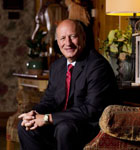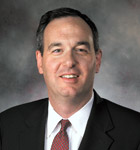
Michelle Kristula-Green is a 29-year veteran of Leo Burnett Worldwide, the legendary Chicago-based agency that invented the Marlboro Man, Tony the Tiger, and a host of other iconic brands. Prior to assuming her current position as global head of people and culture, Kristula-Green tested international waters as president of Leo Burnett’s Japan and Asia-Pacific operations. Now stateside, she serves in a position she describes as more qualitative than quantitative, but says that being responsible for the bottom line was perfect training for her current role. We sat down with Kristula-Green to discuss the global culture at Leo Burnett Worldwide, and how its culture sets the agency apart from the pack and contributes to its competitive edge.
You put the word culture in your title. Why did you feel it was important?
When I have looked back on all the responsibilities I’ve managed, I’ve seen one common thread: that it’s people who make up the company. I always knew that great people were at the center of the agency’s success, so I wanted to make sure that people were always the focus of management discussions. When you have the right people, you have the right culture. If you have the right culture, then people do the right kinds of things. I see the two as linked.
How do you keep Leo Burnett’s culture moving forward?
Our [people and culture] departments are responsible for a multitude of annual activities, such as our August 5th anniversary, the year-end breakfast, the agency of the year, and the Star Reachers Award. We also oversee an annual global people survey, which measures engagement drivers such as innovation, leadership and vision, and how that impacts retention, commitment, productivity, service quality, customer satisfaction, and overall performance.
How are you incorporating your skills and experiences into your current role?
I had been responsible for a P&L [Profts & Loss statement] all my career, and then to be given a role where I’m no longer responsible for that was a big change. At the same time, however, my background was very appropriate, because I have experience handling the challenges associated with people issues. So I’ve been able to bring into this job a practical sense of knowing what our business is all about. I can’t imagine doing this job and not having the background I have.
What challenges do you face when trying to create a global corporate culture?
Succession planning at the senior level and identifying and bringing in talent with the right skills and a diverse range of experiences is something I deal with daily. I’m involved in ensuring we have the right global training and development programs in place and improving them. The talent on our multinational accounts is very international and mobile. They move around the world and play a big role in transmitting the culture. It comes down to not being satisfied with what we have in place and always asking what [else] we need to be doing.
What is the purpose of the annual “people” meetings?
We annually meet in person or by phone with managing directors and heads of people and culture in each market, to talk about the stars, the key contributors, who they are and what we need to do to retain/develop them. We want to ensure we understand their contributions and skills, and that they get included in global training programs. And we talk about who’s mobile—who might potentially want to take their career into another market. It’s time-consuming, but a very effective way of knowing who the key people are in the organization, who the next generation is, what they bring to the table, and how we can maximize their strengths.
You manage global leadership programs. Tell me about those.
We oversee a number of global training and development programs all designed to bring people with different backgrounds and nationalities together. These include the Global Immersion Program, a weeklong meeting between global managers and company leadership; the annual Senior Management Program, which focuses on helping them grow and lead their businesses; and the People Management Program, which helps middle managers increase their authority as leaders. Beyond this are numerous skills programs delivered locally and regionally, such as building retail and shopper marketing or social network expertise.
What do you enjoy most about your job?
I really like working with people and meeting new people. It’s satisfying to get the right people in place and to be able to move them around and help them find their career path. I just like all the interaction. And I love being in the creative environment that an agency provides. I work with so many different and interesting types of people and that variety makes every day fun.

